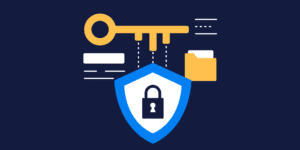The evolving landscape of data protection in Canada sees provinces enacting or refining their respective privacy legislations to address the challenges of the digital age. At the forefront is Quebec’s Law25, a comprehensive and stringent privacy law. Following Alberta, it is the second province that makes privacy breach reporting mandatory. Here’s an overview over the requirements under Law25 Privacy Breach:
Definition of Confidentiality Incident: Privacy breaches are called confidentiality incidents under Law25 and are defined as access to or use and communication of personal information not authorized by law, or loss of personal information or any other breach of the protection of such information. The catch-all phrase at the end seems to mean that actual access is not required but a failure of a security safeguard in place to protect personal information would already suffice to meet this definition.
Trigger for Reporting: Law25 necessitates reporting to the commissioner and the affected individual (unless this could hamper a criminal investigation) if there’s a risk of serious injury. This is a broad term encompassing financial loss, damage to reputation, and more. All other incidents need not be reported to the privacy commissioner. However, all confidentiality incidents need to be recorded in a register, which must be disclosed to the commission upon request.
Timeline: Organizations must notify the Commission d’accès à l’information (CAI) “promptly” following the discovery of a breach.
Content of Notification: Law25 empowers regulators to determine the content of the reports. In November of 2022, the Government of Quebec has released relevant regulations that require the report to contain, among other details, the name of the organization that experienced the confidentiality incident, the name and contact information of the person to be contacted within the organization, a description of the personal information involved in and the number of individuals affected by the incident, a brief description of the circumstances of the incident and, if known, its cause, the date the organization became aware of the incident, and a description of the factors that lead the organization to conclude that there is a risk of serious harm to the individuals affected, such as the sensitivity of the personal information involved, potential malicious uses of that information, anticipated consequences of its use, and the likelihood of it being used for harmful purpose.
Fines and penalties: Failure to comply with the breach reporting obligations can result in either administrative penalties of up to 10 million or 2% of the annual world-wide turnover, whichever is greater, or to criminal penalties up to 25 million or, if greater, 4% of the annual world-wide turnover.
How Private AI can help
The best measure to protect against confidentiality incidents is to not hold personal information in the first place. Private AI’s Redact solution can detect and redact over 50 entities of personal information from unstructured text in different formats in over 52 languages. It’s as easy as implementing three lines of code!
Often, you may need to retain personal information. In those cases, Private AI can help with incident reporting by detecting the personal information contained in the affected unstructured data to ensure that the report to the commissioner contains correct information, i.e., the types of personal information affected. This determination will also help with the assessment of the severity of the incident and the decision of whether reporting obligations arise in the first place.
Conclusion
As data protection continues to evolve in Canada, Quebec sets a new standard for Law25 privacy breach reporting. Compliance is not just a regulatory requirement but an essential element in maintaining public trust. The stakes are high, both in terms of financial penalties and the potential damage to an organization’s reputation. For companies looking to navigate this complex landscape, Private AI’s Redact offers a robust, efficient solution for identifying and redacting sensitive information from unstructured data across multiple languages. This technology not only aids in minimizing the risk of breaches but also plays a crucial role in ensuring accurate and complete incident reporting. By automating the detection of personal information, companies can more effectively assess the severity of a breach, determine whether reporting obligations are triggered, and comply with regulatory requirements. In the challenging environment created by stringent data protection laws, technologies like those offered by Private AI serve as invaluable tools for both compliance and consumer trust.





